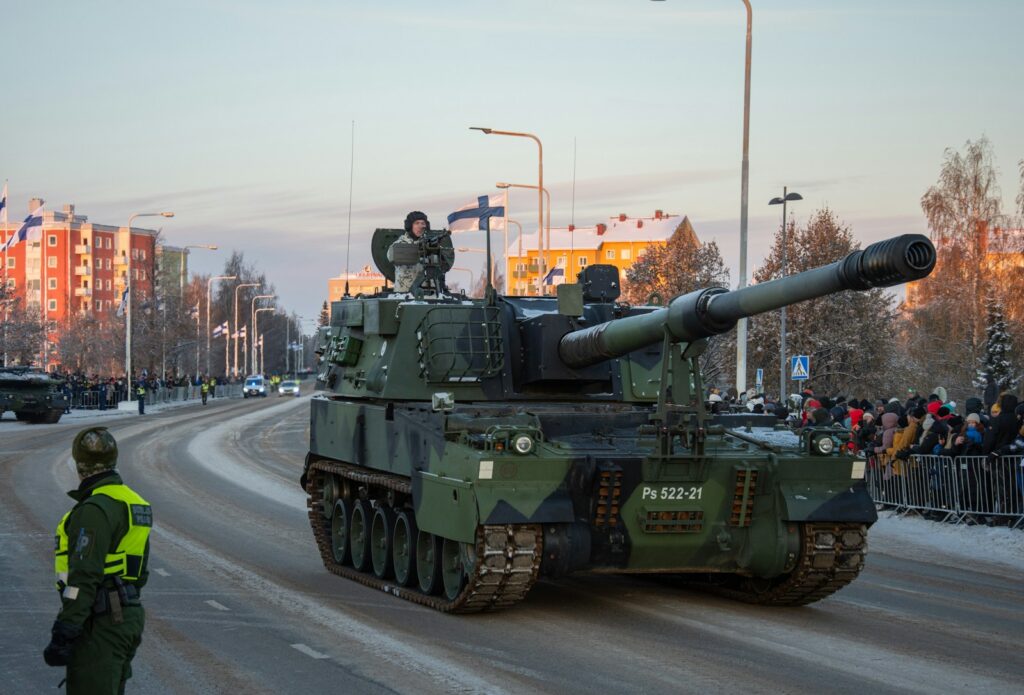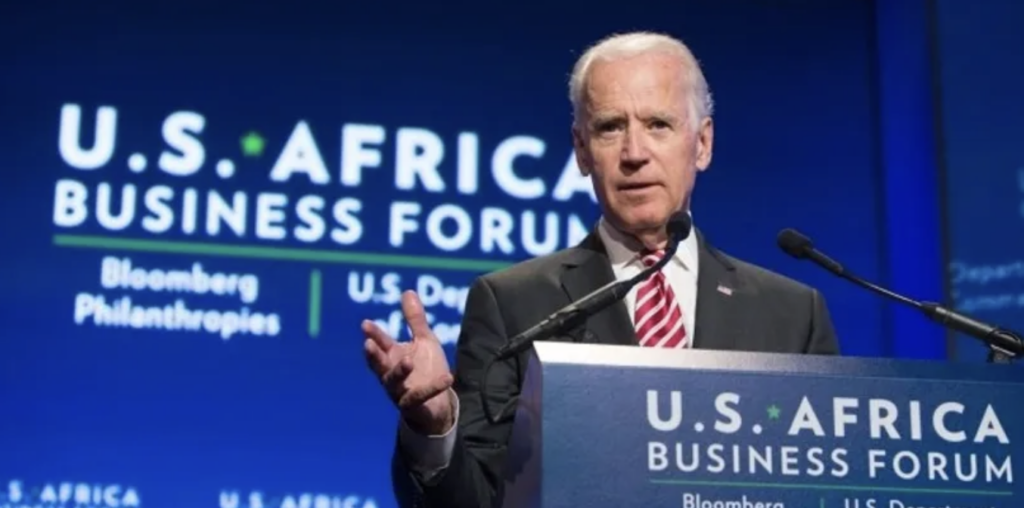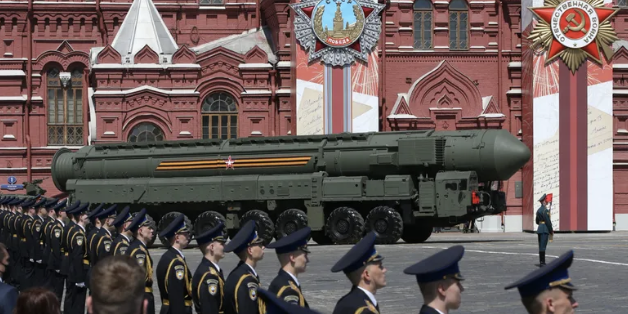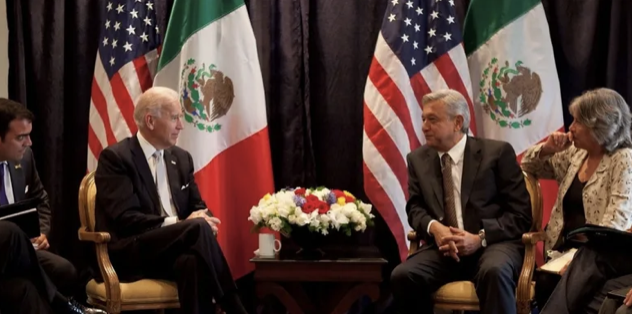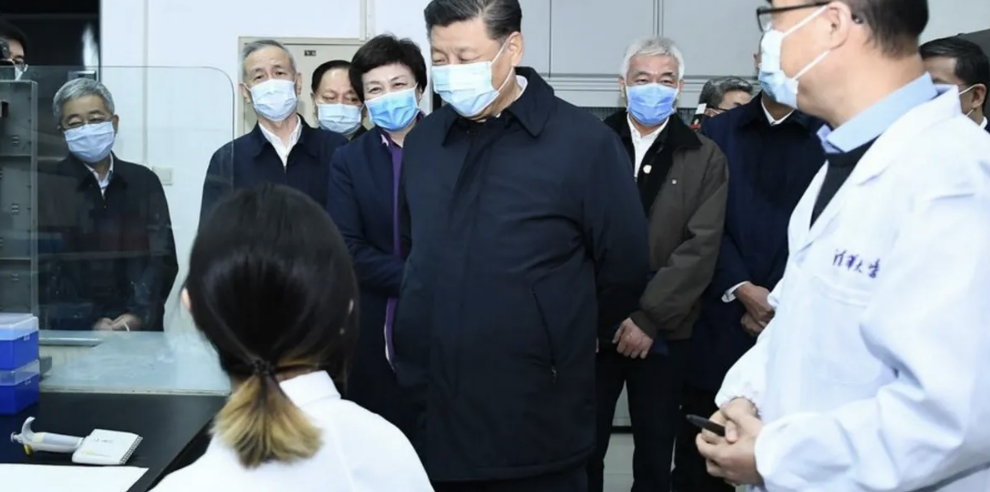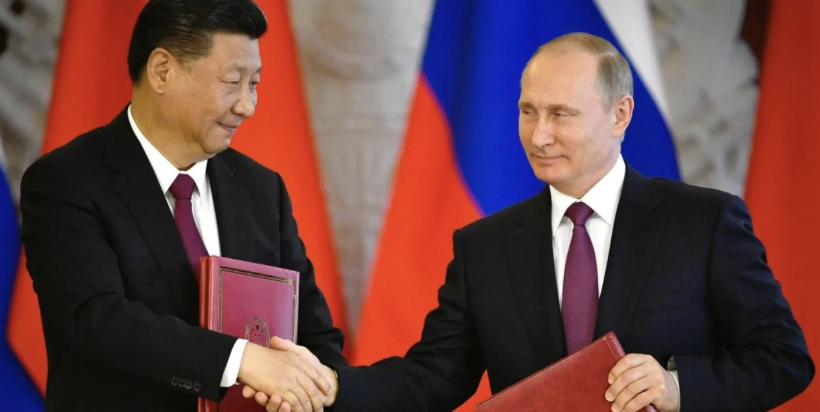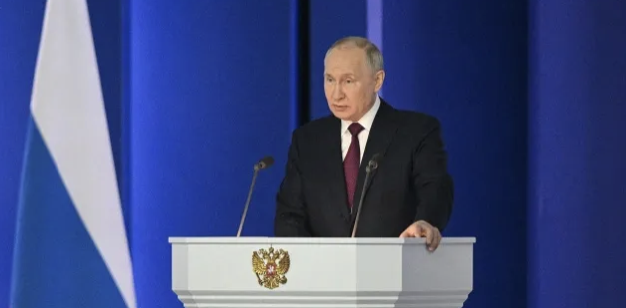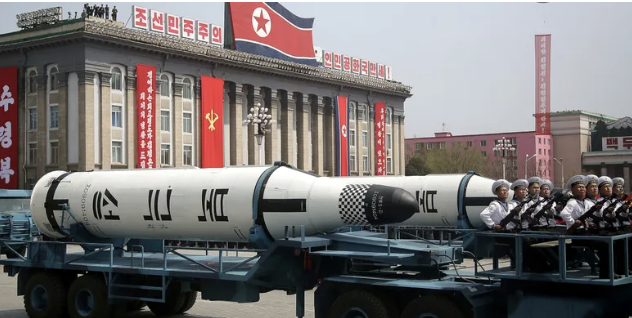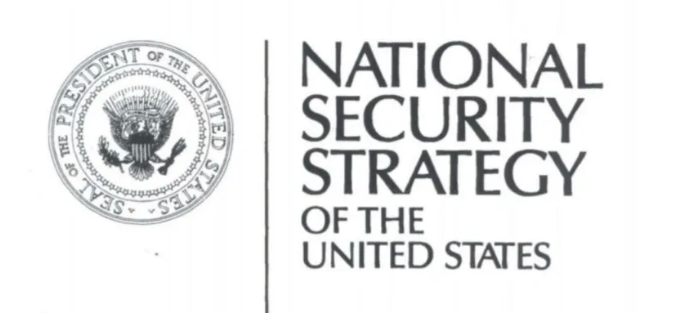Policy Products
Support a Capital Increase for IDB Invest
Bottom line: The U.S. must support a capital increase for IDB Invest, the private sector arm of the Inter-American Development Bank. It is a no-brainer to retain and grow our country’s influence in the Western…
Development Finance Must Finance Development
International finance plays a critical role in shaping 21st century global peace and prosperity. Countries seek investment to pursue economic growth, address critical infrastructure needs, and achieve development goals. America’s exceptional economic strengths are models…
How the Federal Government Should Fight Digital Identity Fraud
The Top Line: Implementing zero trust principles is cybersecurity best practice. The first pillar of zero trust is strong digital identity—that means determining the identity of a user before they can access a service or…
Abandoning Ukraine Would Be Failed American Leadership
Nearly two years after Russia invaded Ukraine, and following Ukraine’s courageous stand against Vladimir Putin’s unprovoked attack, the war is at a critical juncture. Vital American national security interests are at risk. Though the battlefield…
Europe Is Stepping Up On Defense And Ukraine, But Obstacles Remain
Over the past several months, America’s European allies have begun to take greater responsibility for their own security. Many U.S. allies have stepped up spending on defense, and Europe as a whole has taken up…
Section 702: Current Status and What’s at Stake
Section 702 of the Foreign Intelligence Surveillance Act—which is set to expire unless it is reauthorized by December 31, 2023—has been included in the National Defense Authorization Act conference report and would be extended until April…
Recommendations for U.S.-Venezuela Policy
Summary Biden Sanctions Relief Deal Background For the last four years, Venezuela has been entrenched in a political, economic, social, and humanitarian emergency. Beginning with Maduro’s initial election and moving into 2018 presidential elections that…
AI is Critical for Cyber Defense
ChatGPT and other forms of generative artificial intelligence have reinvigorated policy conversations about the future of AI and how the technology should be regulated as it enters the mainstream. The large language models that underpin…
Strengthening U.S. Trade Strategy in the Indo-Pacific
The United States requires a stronger trade agenda to secure U.S. national security and economic interests and counter China in the vital Indo-Pacific region. China today is a larger trading partner than the United States…
How the U.S. Can Support Israel’s Self-Defense
The barbaric and unprecedented air, land, and sea attack by Hamas terrorists against Israel on October 7 killed more than 1,300 Israelis, including at least 25 American citizens, and left thousands wounded and at least…
President Biden’s Approach to Human Rights and the Future of U.S. Foreign Policy
In 2020, then-candidate Joe Biden made protecting human rights abroad a centerpiece of his presidential campaign, saying he would “stand always for our values of human rights and dignity.” Two-and-a-half years into his administration, it is clear that…
Deepening Trade and Economic Relations with Latin America is a U.S. Strategic Interest
Latin America is strategically important for the United States because trade with the region underpins U.S. economic and national security, supports American jobs, and is a critical component of America’s ability to compete with China….
Generative AI: National Security Opportunities and Risks
The Bottom Line AI is moving at 21st-century speed. Generative AI is not a new field, but in early 2023 it exploded in public consciousness due to advancements in real-world applications and user accessibility. It…
Recommendations for U.S.-Iran Policy
This brief critiques the Biden Administration’s approach to Iran and provides recommendations for the next administration to stop Iran’s nuclear program and stand with the Iranian people.
Options Paper: U.S. Foreign Assistance and UN Voting
Introduction During the Trump Administration, both President Trump and U.S. Ambassador to the UN Nikki Haley repeatedly advocated for using a country’s voting record with the U.S. in the UN General Assembly as a metric…
Successful Semiconductor Industry Export Controls: The Importance of a Multilateral Effort
The Top Line: Prompted by U.S. leadership, the democratic world is implementing export controls on sophisticated semiconductor technologies and manufacturing equipment, with the goal of protecting allied access—and limiting adversary access—to this critical supply chain….
China’s Crackdown on Foreign Business and How Congress and the Private Sector Should Respond
Executive Summary The Current Situation China has taken a range of steps targeting foreign interests that fall into two broad categories: (1) legal and regulatory measures to hamper foreign business transactions and increase the risk…
Supporting the Fight for Freedom Abroad as a Source of American National Security
The world has shifted to a renewed era of great power competition. As in the great contests of the 20th century—against Nazi Germany, Imperial Japan, and the Soviet Union—this competition is one not only of…
U.S. Economic Assistance to Ukraine is About More Than Just Ukraine
A prompt Ukrainian victory against invading Russian forces is critical to American national security and economic interests. A notional victory for Russia would signify the triumph of an autocratic adversary over a democratic ally, destabilize…
Buyer Beware: The ICC is the Wrong Venue to Hold Russia Accountable for its Crimes in Ukraine
Russian President Vladimir Putin and forces under his direction have engaged in horrific and senseless crimes following their aggression against Ukraine, including forced deportation of Ukrainian children to Russia, indiscriminate and deliberate attacks against civilians,…
Leading the IC: Why It’s Hard to Be the DNI and What’s Next for the Role
Every Director of National Intelligence (DNI) since the office’s creation in 2004 has been faced with an impossible challenge—leading a community he or she does not own and cannot direct. This mismatch between responsibilities and authorities…
U.S. Economic Policy and the Strategic Competition with the Chinese Communist Party
The Chinese Communist Party (CCP) has set as its chief aim to supplant the United States as the world’s preeminent power and remake the world in its own image. The outcome of the U.S.-CCP strategic…
Recent Leaks of Intelligence: Causes, Implications, and Steps to Mitigate Future Leaks
The recent leak of highly classified documents revealed information potentially damaging to U.S. national security—information that should remain classified because of the risk it has for national security, U.S. persons, and our allies and partners….
Common Sense Defense Reforms
Amid the strategic competition with the Chinese Communist Party and the war in Ukraine, the 118th Congress has an opportunity to make the Department of Defense (DoD) more effective at defending the national security of…
How Europe Can Help Deter China from Attacking Taiwan
As the war in Ukraine drags on, the West must also address the looming threat of conflict over Taiwan. The People’s Republic of China (PRC) is rapidly building a cross-strait invasion force, which it regularly…
Section 702: What It Is, What It Isn’t, and How It Works
Scores of intelligence successes over the last 15 years have depended on one section in one law that will expire at the end of this year. It has been renewed twice since its creation in…
How DoD Can Modernize Faster
The world is in midst of a technological revolution, and the DoD is not doing nearly enough to keep up. The United States, its allies, and its adversaries are in an era of rapid technological advancement:…
Preparing Today for Tomorrow’s Pandemic Threats
“The 118th Congress should address four critical domains to improve our Nation’s preparedness for future pandemic threats: 1) accountability and disease surveillance; 2) WHO reform; 3) engagement with the private sector; and 4) restructuring the…
It’s Time to Get Serious on Fentanyl New Approaches are Needed with Mexico
Three weeks before the midterm elections, President Biden spoke with Mexican President Andres Manuel Lopez Obrador about immigration and deepening cooperation to combat the trafficking of fentanyl from Mexico to the United States. Two and half years…
Building a New U.S. Partnership with Africa
Africa will be home to more people than India and China combined and one quarter of the world’s population by 2050. Many of the fastest growing economies in the world are African, and by 2021,…
Congress is Key to Restoring Realism in U.S. Energy Policy
Among its many destabilizing and disastrous effects, Russia’s war in Ukraine serves as a wake-up call for the need for realism in U.S. and allied energy policy. For too long, those driving the conversation have…
Engaging Chinese Engagement in Latin America
China’s inroads and influence in Latin America are continuing to grow. While speaking at a background briefing about the still-missing National Security Strategy, a senior official at the National Security Council touted that the Western Hemisphere section…
EINSTEIN Reauthorization: A Chance to Leap Ahead in Federal Network Security
There is broad recognition that federal network security is more than just a government IT issue, but rather something foundational to the personal privacy of Americans’ sensitive information and national security. The federal government has…
Preventing the Next Escalation in Ukraine and Beyond—Deterring Russian Nuclear or Chemical Weapon Use
The Administration set out to deter the current Russian campaign against Ukraine by promising a series of “crippling” economic sanctions if, and only if, Russia went ahead with its attack. The world continues to witness the…
Mexico’s Strategic Shift Away from the United States Threatens National Security—How U.S. Leaders Should Respond
This week’s Summit of the Americas lays plain the truth of the current state of the U.S.-Mexico relationship: Mexican President Andres Manuel Lopez Obrador (AMLO) is pursuing a strategic shift away from close bilateral cooperation…
Does the United States Need a National Technology Policy?
Policymakers in the United States, particularly conservatives, ought to support government policy that incentivizes American industry to compete against an economically and technologically surging China, which will level the playing field against a competitor that…
Improving Congress’s Pending China Bills (With Hints from Beijing)
Summary Introduction Know Thy Adversary: Members of Congress who are now conferring to reconcile the China bills passed over the last year by the Senate (USICA) and the House (COMPETES Act) would benefit from considering…
Blueprint for a Sound and Serious Climate Policy
Maintaining U.S. living standards and national security depends on the reliable, ample, and affordable flow and conversion of hydrocarbon energy sources – oil, gas, and coal – that supply 80% of the world’s growing energy…
Principles for China Competition in Light of the Ukraine War
Since Russia’s invasion of Ukraine began in February, Xi Jinping has stood by Vladimir Putin internationally, affirmed the “no-limits” partnership he signed with the Russian leader on the eve of the Ukraine war, coordinated China’s…
How to Respond to Russia’s Anti-Satellite Test
On November 15, 2021, Russia’s Ministry of Defense launched a direct-ascent anti-satellite (DA-ASAT) missile at one of its own satellites, successfully striking and destroying the target. In the process of doing so, Moscow demonstrated that…
Creating an Arsenal of Energy:
How to Bolster U.S. Energy Security and Aid our Allies Confronting Authoritarian Aggression Russia’s invasion of Ukraine has roiled global energy markets, spawning oil and gas price spikes that threaten economic growth and geopolitical stability. …
Nuclear Posture Review: First, Do No Harm
President Biden used an emergency meeting with NATO Heads of State to announce that he would soon issue a revised “declaratory policy” as part of his Administration’s Nuclear Posture Review (NPR). Declaratory policy is, in essence,…
Putin’s New START Suspension: A Welcome Wake-up Call
On February 21, Russian President Vladimir Putin announced that Russia would suspend its participation in the 2010 New Strategic Arms Reduction Treaty (New START), which limits the number of strategic warheads and launchers that can…
China’s Surveillance Balloon is Just One Tool in China’s Espionage Toolkit—How U.S. Leaders Should Respond
In early February, the U.S. military shot down four flying objects in North America. While we do not know where the three “unidentified aerial phenomena” came from, we know with certainty the balloon that transited…
FAL Europe Working Group Brief
How the U.S. and Europe Should Respond to the Russian War against Ukraine Russia’s invasion of Ukraine threatens to extinguish Ukraine as an independent state and to destabilize the European continent. While the full extent…
How to Respond to the Russian War Against Ukraine
Russia’s invasion of Ukraine threatens to extinguish Ukraine as an independent state and to destabilize the European continent. While the full extent of Vladimir Putin’s ambitions are not yet clear, his immediate aim is to…
How to Think About the National Defense Strategy
President Biden’s Pentagon is soon to release the next National Defense Strategy (NDS). This congressionally mandated document will only be the second of its kind. The 2018 NDS succeeded two decades of Quadrennial Defense Reviews…
Don’t Hand North Korea a Win in the Missile Defense Review
The Biden Administration is considering a proposal to abandon pacing U.S. homeland ballistic missile defenses against even the rogue state threat from North Korea. This is especially risky and should be rejected in favor of the…
Priorities for the National Security Strategy
Summary The Biden Administration will soon issue its National Security Strategy. The NSS should guide policies and investments that protect and sustain the American experiment of republican liberty, and a world in which it can…
The Summit for Democracy – What to Know, What to Do
What to Know President Biden’s Summit for Democracy on December 9 & 10 will convene leaders from 110 countries. It creates a strategic opportunity to defend open societies against authoritarian aggression and rally U.S. allies…
What To Do About Putin’s Ukraine Buildup—And Why This Time May Be Different
Russia’s ongoing military buildup near Ukraine is shaping up to be the next big test of President Biden’s foreign policy. Such buildups are not new; what makes this one different is that it comes in…
What to Do About Venezuela’s Fraudulent Elections, Repression, and Executions
In August, the Forum for American Leadership (FAL) issued a report on the Venezuelan negotiation process hosted by Mexico. We argued: first, that the Maduro regime has used all previous negotiation processes to distract from a real…
U.S. Strategic Interests in the Middle East and North Africa in Great Power Competition
While the U.S. shifts more attention toward great power competition with China and Russia, the Middle East and North Africa (MENA) region will continue to present its own set of serious national security challenges. The…
How Biden’s Missile Defense Review Can Succeed
Since the Obama Administration in 2010, it has become a practice for each new Administration to put its own stamp on U.S. missile defense policy (as it does on nuclear policy). In its Missile Defense…
Eight Necessary Steps to defend U.S. Critical Energy Infrastructure from Cyber Attacks
A prolonged disruption in energy flows caused by foreign cyberattackers could quickly inflict catastrophic harm to American lives, health, and national security. The May 7, 2021, Colonial Pipeline cyberattack highlighted the importance of engaging in…
Counterterrorism in Afghanistan: Where We Are, Where To Go
The Taliban’s victory in its 20-year insurgency against the U.S.-backed Afghan government is a major setback to U.S. counterterrorism efforts. Since the fall of Kabul, the U.S. and its allies likely face a higher risk…
How to Spend a Higher Defense Topline
Both the Senate Armed Services Committee (SASC) and House Armed Services Committee passed bipartisan increases to the Department of Defense’s budget request for fiscal year 2022. This investment would result in ~3% real growth for…
Venezuela: Negotiations, Leverage, and U.S. Redlines
According to media reports, the Biden administration is supporting a new round of talks with Venezuela that will be overseen by Norway and take place in Mexico in mid-August, despite the recent disappearance and arrest…
Memo: How the Biden Administration Can Turn the Risky “Strategic Stability” Talks with Russia into a Success
On July 28th, Deputy Secretary of State Wendy Sherman led an interagency delegation to Geneva to meet with Russian counterparts to focus on topics related to nuclear deterrence and arms control. “Strategic stability” dialogues are nothing new. The Trump…
What Congress Should Consider Before Repealing the Iraq AUMF
Congress is considering a resolution to repeal the 1991 and 2002 Authorizations for the Use of Military Force (“AUMF”) against Iraq. The Executive Branch has not invoked the 1991 AUMF since the First Gulf War,…
5 Cuba Myths Debunked
Myth 1: Cuba does not pose a national security threat to the United States. Myth 2: The U.S. embargo is responsible for the suffering of the Cuban people. Myth 3: The limitations on remittances are…
Ten Principles for Europe Policy
President Biden has advertised that he will “rebuild” relations with Europe after what his administration describes as four years of neglect and mistreatment under the Trump administration. Maintaining close ties with Europe is important –…
Taiwan, Semiconductors, and the next National Defense Strategy
What to Know: 1. Semiconductors are critical for U.S. economic prosperity and national security. Congressional action through the U.S. Competition and Innovation Act can help in the long run. But Taiwan will remain a critical…
How the U.S. Should Respond to the Proposed IMF Special Drawing Rights Allocation
The International Monetary Fund (IMF) is currently moving towards a Special Drawing Rights (SDR) allocation equivalent to $650 billion U.S. dollars. According to the IMF, “by addressing the long-term global need for reserve assets, a…
What to Know: The Cost of U.S. Nuclear Forces
In recent weeks, opponents of nuclear modernization seized on analysis from the Congressional Budget Office on the projected cost of U.S. nuclear forces, falsely suggesting a sudden increase over previous cost estimates. These opponents are…
How to Use Economic Sanctions Effectively
In recent years, economic sanctions have become a powerful tool of statecraft, applied to address a wide range of national security challenges, from terrorism and weapons proliferation to human rights abuses, corruption, and efforts to…
The False Choice of “Defense or Infrastructure”
As the Biden Administration and Congress consider new investments in infrastructure, they should be wary of attempts to create a false choice between defense and infrastructure spending. For example, a recent report from the RAND…
Vaccine Strategy for Latin America and the Caribbean
A U.S. Vaccine Strategy for Latin America and the Caribbean As the United states achieves the vaccination of the majority of our population against COVID-19, it is time to implement an aggressive strategy to provide…
10 Myths on the Defense Budget
As President Biden prepares to submit the FY2022 budget to Congress, myths and misinformation surround the defense budget. The facts are important to remember, and the stakes are higher than ever. Myth 1: “We just…
10 Principles for the Defense Budget
As Congress reviews President Biden’s FY2022 budget request, China is escalating its threats against Taiwan and Russian forces are gathering on its western border. Providing adequate funds for our military is critical, so is how…
National Defense Strategy
The Biden Administration is preparing its National Defense Strategy (NDS), mandated in law to be delivered to Congress in 2022. This seminal document shapes policy and budgetary decisions throughout the Pentagon and will determine how…
The United States Needs a National Security Strategy
The United States is confronting Russia’s invasion of Ukraine – and its geopolitical implications – in the absence of a National Security Strategy (NSS). The NSS that the Biden Administration produces this year should reflect…





